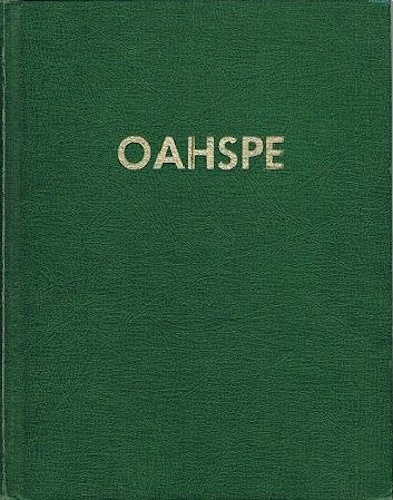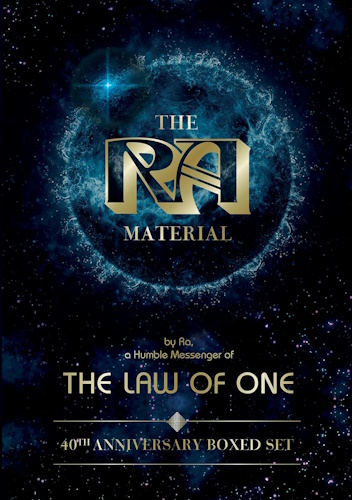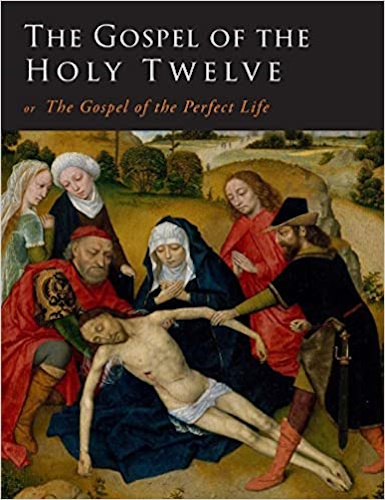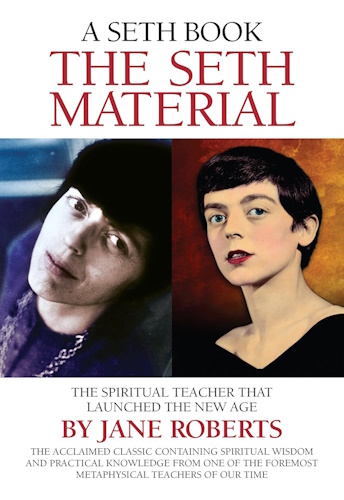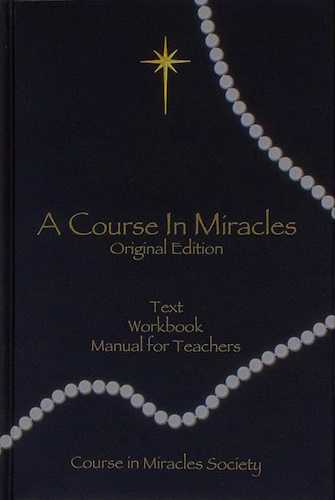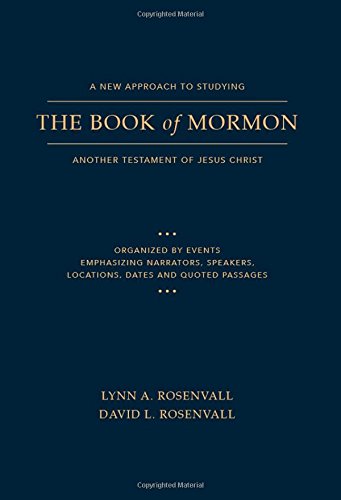
![]()
![]()
Book of the Arc of Bon
Chapter XXVII
1. TE-ZEE, the king, sent for another magician, Wan-jho, who came and was commanded to exhibit his powers; but he also demanded a high price; which the king agreed to pay, and Wan-jho exhibited. First he caused a rose to come within a glass bottle whilst it was shut; then a small serpent he created out of a rod, and caused birds to come and sing to the king; then changed vinegar into water; then writing on a stone tablet without touching the tablet, and even whilst the tablet lay under the king's foot.
2. Now after he had exhibited many more feats of like character, he demanded his money, saying: The angels are gone; I can do no more. The king said: And hast thou not power to fetch them back?
3. Wan-jho said: How much wouldst thou give? The king answered: Three pieces of gold. And Wan-jho said: Ah, in that case, behold, they are come again! What wouldst thou? The king commanded him to show the spirits of the dead, so he might converse with them.
4. Wan-jho went into the same place where Loo'Sin had exhibited, and, laying down, cast himself in the death trance. Presently an angel, robed in white, appeared, and came and stood before the king, saying: Most mighty king, what wouldst thou? Behold me, I am the Goddess, Oe-tu Hent, come from my throne in high heaven. And be thou desirous of conquest in war, or to attain great riches, or more wives, most beautiful, then will I by my most potent will give unto thee.
5. The king said: I am blest, O Goddess, because thou hast come to see me. But alas, none of the things thou hast mentioned suiteth me. I desire nothing as regardeth this world. Give me light as to the place in heaven where dwelleth king See Quan?
6. The spirit said: Were he thy friend or thine enemy? The king answered: He was my deadly enemy. The spirit said: Because I asked thee, is he thy friend or thine enemy? for I saw one See Quan in hell, writhing in great agony. And yet I saw another See Quan in paradise. So, then, I will go and fetch him that is in hell.
7. The spirit passed over to the corner, and presently returned, saying: O, O, O, O, O! Horrors! Demons! Hell! and such like, pretending to be in torments, as if it were See Quan in torments.
8. After this the king called for many different spirits, whether they had ever been, or whether fictitious, and they came all the same. Finally Te-zee, the king, said: Bring me now the wisest God in heaven, for I would question him. So, the spirit went again toward the corner, and then approached, saying: Man of earth! Because thou hast called me I have come. Know thou when I come, and I decree four gold pieces to Wan-jho my prophet.
9. The king said: Most just, God! I will pay him. Tell me now whence cometh man, and what is his destiny?
10. The spirit said: First, then, the air above the earth is full of elementary spirits; the largest are as large as a man's fist, and the smallest no larger than the smallest living insect on the earth. Their size denoteth their intelligence; the largest being designed for human beings. These fill all the air of the earth, and all the space in the firmament above the earth; they have existed from everlasting to everlasting, for they were without beginning.
11. Now whilst a child is yet within the womb, one of these elementaries
p. 534
entereth in the child, and straightway there is the beginning of the man. And in like manner are all things produced which live on the earth.
12. The king asked: Before such time when man beginneth, whilst these elementaries are floating about, do they know anything? The spirit said: Many of them have great wisdom and cunning, and are withal great liars and thieves and rascals. Knowest thou one Loo Sin, a magician? The king answered, Yea. And then the spirit said: Well, Loo Sin is obsessed by the elmentaries, and they are all great liars, pretending to be spirits of the dead! As for myself, I am a most virtuous Goddess, from the highest heavenly spheres. I tell thee, O king, these elementaries are the curse of the world; they are anxious to be born into life, so they may have souls, and they inspire mortals to paternity and maternity that they may have an opportunity for incarnation.
13. The king said: Thou hast answered well, O Goddess. I will pay according to thy decree. And thereupon the spirit departed. King Te-zee sent for another magician, Hi Gowh, of the rank of priest, and having bargained with him as to his price for exhibiting, commanded him to proceed.
14. Hi Gowh then exhibited after the same fashion as the others, doing great wonders. And him also did the king command to show the spirits of the dead. Hi Gowh complained about the price; but being assured by the king that his demands would be paid, the magician went into the same corner and cast himself in the holy ghost (trance); and, presently, a spirit appeared, saying: Greeting to thee, O king! Whether thou desirest conquest, or riches, or more women, name thou to me, and I will give abundantly. Know thou I am the spirit of the great Zarathustra.
15. The king said: Great Zarathustra, thou art most welcome. But, alas, none of the things thou has named are what I desire. Tell me, O Zarathustra, what is the origin and destiny of man?
16. The spirit said: First, then, O king, in days long past, the sun turned round so swiftly it threw off its outer rim, and the rim broke into a million pieces, flying every way, and these pieces are the stars and the earth and the moon.
17. And for millions of years the earth was only a stone, melting hot; but it cooled off in time; and the outer stones on the earth were oxidized, and this made moss; then the moss died; but the spirit of the moss re-incarnated itself, and this made grass; and the grass died; but the spirit of the grass lived and re-incarnated itself, and thus made the trees.
18. Then the trees died, but the spirit lived, and it re-incarnated and became animals; and they died, but their spirits lived and re-incarnated and became man. After that the spirit no longer re-incarnateth itself, but floateth upward into peace, and resteth for a long time, when it finally mergeth back into the sun and is extinct, like a lamp burnt out.
19. The king asked: How, then, is it with thyself? The spirit replied: I was the original Sun God, that came away from the sun to take charge of this world. It is in my keeping. The king asked: Who, then, is the All First that still stayeth with the sun?
20. The spirit answered: Because thou asketh many questions, O king, thou shalt pay more money. The king assured the spirit that the money, to any amount, would be paid: whereupon the spirit said: Ahura-Ormazd was the original of all; but when the sun threw off its surface Ahura-Ormazd was thrown into pieces, one piece going to every star, save the earth, and I came here of my own accord, because it was larger and better than any other world.
21. The king dismissed the spirit and the priest, and sent for another, a magician also of the rank of priest, Gwan Le. And Gwan Le, being assured that his price would be paid, proceeded to exhibit also. And he performed feats even like the others. Then the king commanded Gwan Le to call the spirits of the dead.
22. The priest apologized about the expense of the death trance (holy ghost power), but being further assured that his demands would be paid, he went into the corner and cast himself into the swoon, stiff and cold.
23. Presently an angel appeared, saying: Behold me, O king, I am Brahma. And if thou desire conquest in war, or greater riches, or more women, I will grant unto thee. I can tell thee of hidden treasures, and of rich mines, and of women greatly to be desired. Also I can tell thee how thy armies can overcome thy enemies with great slaughter.
24. The king said: I am delighted, O Brahma. But I desire nothing of which thou hast mentioned. Tell me of the origin and destiny of man.
25. The spirit said: Know then, O king, all things alive have two parts, the corporeal and the spiritual; all
p. 535
dead things are but one, which is the spirit. Thou, O king, wert first a stone, a very large stone; then when it moldered into dust thy soul went into silver, a very large piece; but when the silver rusted away, thy soul went into gold; and when the gold was worn away, thy soul began to run into animal life, then into a low order of man, then into the high order of man, as thou now art. Thus came man up from the beginning, re-incarnating himself over and over, higher and higher and higher. And when he is perfected in spirit as thou art, he never more returneth to re-incarnate himself. The king asked: What doth the spirit after leaving this world? The spirit replied: Thou shalt then meet thy sexual partner, thy soul-wife; and shall do nothing ever after but have sexual indulgence, peopling the spirit realms with delightful spiritual offspring.
26. The king said: It is well; thou hast a wonderful doctrine. Thereupon the spirit departed, and the priest also. And the king sent for still another priest, Tseeing, A Brahman prophet. And the king asked him: What seest thou for thy king?
27. The priest said: By the rites of my order I cannot disclose any of the secrets of heaven or earth until thou hast paid the price of indulgence, which is two pieces of gold. So the king paid him. Tseeing said: And thou desire riches, or success in war, or new wives, speak thou and I will grant unto thee according to the price. The king said: Alas, Tseeing, I desire none of these indulgences; tell me the origin and destiny of man, for I would learn why I am, and the object and end.
28. Tseeing said: The first of all was Brahma, which was round like an egg. Then Brahma broke open, and the shell was in two halves, and one-half was the sky and the other half was the earth. Then Brahma incarnated himself in the earth, but he came not up as one only, as he expected, but he came up in ten millions and one million parts, and every part was a living thing, a tree, or a plant, or a fish, or a bird, or a beast, or a man. And this is all there is or was or ever shall be.
29. But Brahma looked over the world and he saw that some men were good and some evil. And he said: I will separate the good from the evil. And that justice might be done he called all the nations and tribes of men before him. And when they were come he said unto them:
30. Whoever delighteth in the earth, it shall be his forever. And though he die, his spirit shall have power to re-incarnate itself into another unborn child, and so live over again, and so on, forever. And he shall have great indulgence in the earth, in eating and drinking, and with women, and in all manner of delights, for they shall be his forever.
31. But whosoever delighteth in spirit shall be blest in spirit. He shall not, after death, re-incarnate himself and live over again, but shall dwell forever in heaven and have heavenly delights. But since heavenly delights are not after the manner of earthly delights, then shall the spiritual choser not live like earth-people.
32. But he shall live secluded, and shall torment his flesh with fastings and with castigations. Neither shall he marry or live with woman, nor beget children, nor have any indulgence on the earth whatever, save merely to live, for the earth is not his, nor is he of the earth. And the more he tortureth the flesh, the higher shall be his bliss in heaven.
33. Now, when Brahma had stated the two propositions unto the children of the earth, he further added: Choose ye now which ye will, for after ye have chosen, behold, there is the end. For ye that choose the earth shall be of the earth, even unto all succeeding generations. But whoso chooseth heaven, to him and his heirs it shall be final, and forever.
34. Thereupon mortals made choice, and lo and behold, nearly all of them chose the earth. But in thousands of years and millions of years afterward Brahma repented of his former decree, for he saw the earth become too full of people, and they were sinful beyond bounds. And Brahma sent a flood of waters and destroyed ten thousand million times ten millions of them. And he sent Zarathustra into the world to give new judgment.
35. Zarathustra opened the door of heaven anew, saying: Whoever after this chooseth Brahma, and will torture his flesh, and hate the earth, and live away from the world, him will I save from the earth and from hell also, for I am very efficient and influential with the Creator.
36. Such then, O king, is the origin and destiny of man. Some are born for the earth forever, and some are born for heaven. Nevertheless, the way is open unto all, to choose which they will, earth or heaven.
-
Urantia Book, 44:0.11 - The Celestial Artisans
Never in your long ascendancy will you lose the power to recognize your associates of former existences. Always, as you ascend inward in the scale of life, will you retain the ability to recognize and fraternize with the fellow beings of your previous and lower levels of experience. Each new translation or resurrection will add one more group of spirit beings to your vision range without in the least depriving you of the ability to recognize your friends and fellows of former estates.
-
Princess Bride 1987 Wallace Shawn (Vizzini) and Mandy Patinkin (Inigo Montoya)
Vizzini: HE DIDN'T FALL? INCONCEIVABLE.
Inigo Montoya: You keep using that word. I do not think it means what you think it means. -
Urantia Book, 117:4.14 - The Finite God
And here is mystery: The more closely man approaches God through love, the greater the reality -- actuality -- of that man. The more man withdraws from God, the more nearly he approaches nonreality -- cessation of existence. When man consecrates his will to the doing of the Father's will, when man gives God all that he has, then does God make that man more than he is.
-
Urantia Book, 167:7.4 - The Talk About Angels
"And do you not remember that I said to you once before that, if you had your spiritual eyes anointed, you would then see the heavens opened and behold the angels of God ascending and descending? It is by the ministry of the angels that one world may be kept in touch with other worlds, for have I not repeatedly told you that I have other sheep not of this fold?"
-
Urantia Book, Foreword - 0:12.12 - The Trinities
But we know that there dwells within the human mind a fragment of God, and that there sojourns with the human soul the Spirit of Truth; and we further know that these spirit forces conspire to enable material man to grasp the reality of spiritual values and to comprehend the philosophy of universe meanings. But even more certainly we know that these spirits of the Divine Presence are able to assist man in the spiritual appropriation of all truth contributory to the enhancement of the ever-progressing reality of personal religious experience—God-consciousness.
-
Urantia Book, 1:4.3 - The Mystery Of God
When you are through down here, when your course has been run in temporary form on earth, when your trial trip in the flesh is finished, when the dust that composes the mortal tabernacle "returns to the earth whence it came"; then, it is revealed, the indwelling "Spirit shall return to God who gave it." There sojourns within each moral being of this planet a fragment of God, a part and parcel of divinity. It is not yet yours by right of possession, but it is designedly intended to be one with you if you survive the mortal existence.
-
Urantia Book, 1:4.1 - The Mystery Of God
And the greatest of all the unfathomable mysteries of God is the phenomenon of the divine indwelling of mortal minds. The manner in which the Universal Father sojourns with the creatures of time is the most profound of all universe mysteries; the divine presence in the mind of man is the mystery of mysteries.
-
Urantia Book, 1:4.6 - The Mystery Of God
To every spirit being and to every mortal creature in every sphere and on every world of the universe of universes, the Universal Father reveals all of his gracious and divine self that can be discerned or comprehended by such spirit beings and by such mortal creatures. God is no respecter of persons, either spiritual or material. The divine presence which any child of the universe enjoys at any given moment is limited only by the capacity of such a creature to receive and to discern the spirit actualities of the supermaterial world.
-
Urantia Book, 11:0.1 - The Eternal Isle Of Paradise
Paradise is the eternal center of the universe of universes and the abiding place of the Universal Father, the Eternal Son, the Infinite Spirit, and their divine co-ordinates and associates. This central Isle is the most gigantic organized body of cosmic reality in all the master universe. Paradise is a material sphere as well as a spiritual abode. All of the intelligent creation of the Universal Father is domiciled on material abodes; hence must the absolute controlling center also be material, literal. And again it should be reiterated that spirit things and spiritual beings are real.
-
Urantia Book, 50:6.4 - Planetary Culture
Culture presupposes quality of mind; culture cannot be enhanced unless mind is elevated. Superior intellect will seek a noble culture and find some way to attain such a goal. Inferior minds will spurn the highest culture even when presented to them ready-made.
-
Urantia Book, 54:1.6 - True And False Liberty
True liberty is the associate of genuine self-respect; false liberty is the consort of self-admiration. True liberty is the fruit of self-control; false liberty, the assumption of self-assertion. Self-control leads to altruistic service; self-admiration tends towards the exploitation of others for the selfish aggrandizement of such a mistaken individual as is willing to sacrifice righteous attainment for the sake of possessing unjust power over his fellow beings.
-
Urantia Book, 54:1.9 - True And False Liberty
How dare the self-willed creature encroach upon the rights of his fellows in the name of personal liberty when the Supreme Rulers of the universe stand back in merciful respect for these prerogatives of will and potentials of personality! No being, in the exercise of his supposed personal liberty, has a right to deprive any other being of those privileges of existence conferred by the Creators and duly respected by all their loyal associates, subordinates, and subjects.
-
Urantia Book, 54:1.8 - True And False Liberty
There is no error greater than that species of self-deception which leads intelligent beings to crave the exercise of power over other beings for the purpose of depriving these persons of their natural liberties. The golden rule of human fairness cries out against all such fraud, unfairness, selfishness, and unrighteousness.
